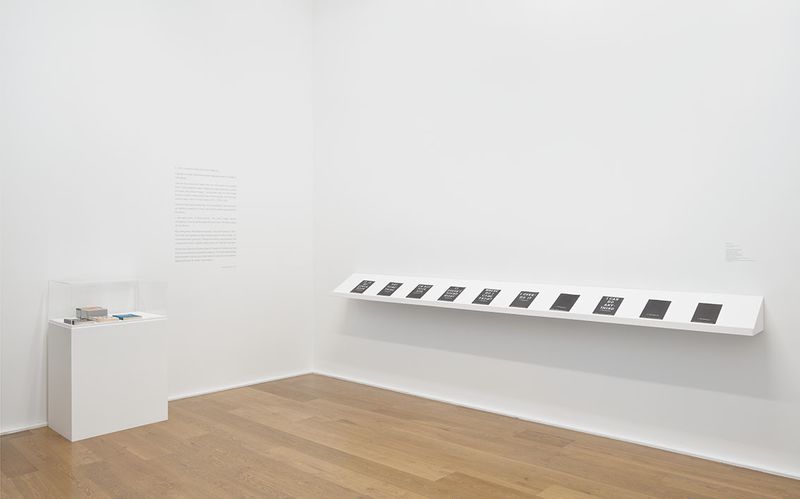
Lee Lozano and Ida Applebroog Book Lab
19 May - 29 Jul 2017
Past
London
Book & Printed Matter Lab
About
Installation views
About the Artists

Lee Lozano’s paintings are admired for their energy, daring physicality and tirelessness in investigating the body and issues of gender. Although lauded by Lucy Lippard in 1995 as the foremost female conceptual artist of her time, Lozano had disengaged herself from the New York art world completely by the early 1970s. She left behind a body of work of striking formal breadth and complexity. Lozano fought to consolidate her artistic self in a realm void of systems, rules, and group consciousness. She pursued a wholly independent solo studio practice, which culminated in her rejection of the New York art world and a boycott of women. She first refused to attend public art world functions and withdrew from exhibitions, finally relocating to Dallas, Texas. ‘By refusing to speak to women,’ says curator Helen Molesworth, ‘she exposed the systematic and ruthless division of the world into categories of men and women. By refusing to speak to women as an artwork, she also refused the demand of capitalism for the constant production of private property… The strategy of rejection is a powerful one.’

A self-proclaimed ‘generic artist’ and an ‘image scavenger,’ painter and feminist pioneer Ida Applebroog spent the past six decades conducting a sustained inquiry into the polemics of human relations. She explored themes of violence and power, gender politics, women’s sexuality and domestic space using images stylistically reminiscent of comics, at once beguiling and disturbing.
Applebroog first came to attention in New York in the mid-1970s, formulating her practice with a series of small self-published books, ‘Stagings’ of identical cartoon images presented in succession, evocative of flipbooks or film stills, which she mailed to other artists, writers and individuals. From this beginning, she developed an instantly recognizable style of simplified human forms with bold outlines. In an Applebroog exhibition, the visitor becomes an observer and a participant in a domestic drama where fragmented narrative scenes are neither beginnings nor ends to the story.
Current Exhibitions
1 / 9








